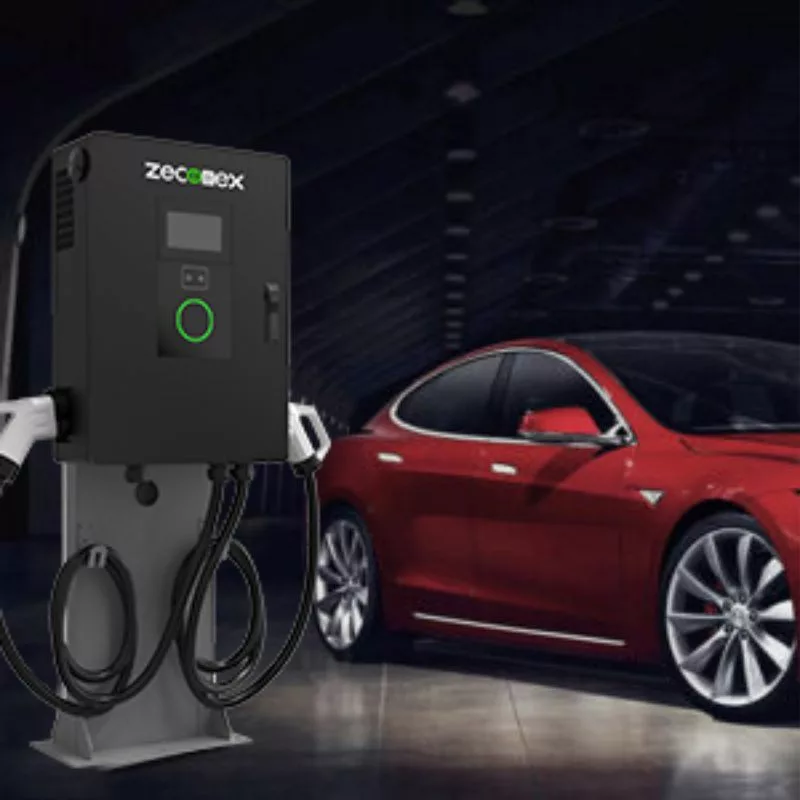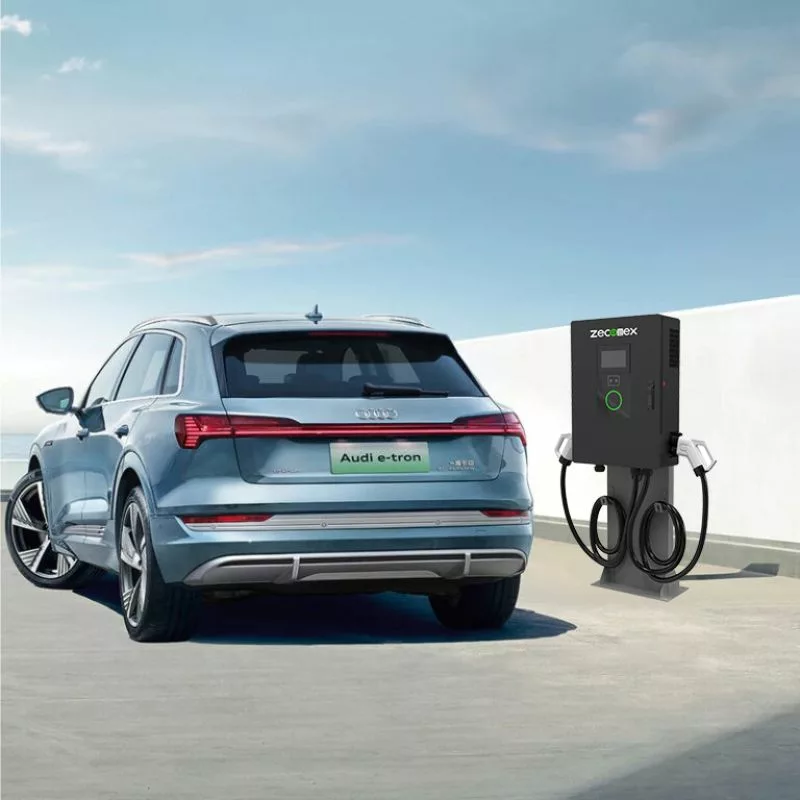As the world transitions towards a more sustainable future, the transportation sector is undergoing a profound transformation, driven by the rapid advancement of electric vehicles (EVs). At the heart of this revolution lies the growing network of commercial EV chargers, which are not only fueling the adoption of EVs but also propelling innovation and sustainability across the industry.
Innovation at the Forefront
Commercial EV chargers are serving as catalysts for innovation, pushing the boundaries of charging technology and redefining the user experience. The demand for faster charging times is spurring the development of high-powered and ultra-fast charging solutions, enabling EVs to replenish their batteries in a matter of minutes.
Smart charging technology is being integrated into commercial charging stations, allowing for dynamic adjustments to charging power based on grid conditions and user needs. This intelligent approach optimizes energy usage, reduces strain on the power grid, and potentially lowers charging costs.
How Commercial EV Chargers Drive Innovation
Commercial EV chargers are acting as a catalyst for innovation in the electric vehicle (EV) industry in several key ways.
Demand for Faster Charging
The need to reduce charging times for convenient commercial use is pushing manufacturers to develop faster and more efficient charging technologies. This includes advancements in high-powered charging (e.g., DC fast chargers) and ultra-fast charging (capable of charging an EV in under 15 minutes).
Smart Charging Solutions
Commercial charging stations are incorporating smart grid technology that allows for dynamic adjustments to charging power based on grid conditions and user needs. This optimizes energy usage, reduces strain on the power grid, and potentially lowers charging costs.
Integration with Renewable Energy
Companies are exploring ways to integrate renewable energy sources like solar panels into charging stations, creating a more sustainable and self-sufficient charging infrastructure.
Data-Driven Insights
Commercial charging networks are generating valuable data on user behavior and charging patterns. This data is being used to improve charging station design, optimize pricing strategies, and inform future infrastructure development.
Standardization and Interoperability
The need for seamless charging across different EV models and charging networks is driving the development of standardized charging protocols and connectors. This ensures a more user-friendly and efficient charging experience.
Sustainability - A Driving Force
The expansion of commercial EV charging infrastructure is not merely about convenience; it is a cornerstone of a sustainable transportation future. By promoting the adoption of EVs, commercial chargers are contributing to a significant reduction in emissions from gasoline-powered vehicles, leading to cleaner air and improved public health.
EVs are inherently more energy-efficient than traditional gasoline vehicles, particularly when coupled with renewable energy sources for charging. Commercial charging stations are increasingly being integrated with solar panels and other renewable energy systems, creating a more sustainable and self-sufficient charging infrastructure.


How Commercial EV Chargers Drive Sustainability
The expansion of commercial EV charging infrastructure is a significant driver of sustainability through several factors.
Reduced Emissions
By promoting the adoption of EVs, commercial chargers contribute to a decline in emissions from gasoline-powered vehicles, leading to cleaner air and improved public health.
Energy Efficiency
EVs are inherently more energy-efficient than traditional gasoline vehicles, particularly when coupled with renewable energy sources for charging.
Grid Modernization
The development of smart charging technology for commercial stations can help to stabilize the power grid by optimizing energy usage during peak and off-peak hours.
Reduced Dependence on Fossil Fuels
The widespread adoption of EVs powered by commercial charging stations lessens reliance on fossil fuels, promoting energy independence and long-term environmental benefits.
A Collaborative Effort
The future of commercial EV chargers lies in collaboration and innovation. Manufacturers, utility companies, policymakers, and research institutions must work together to develop standardized charging protocols and connectors, ensuring seamless charging across different EV models and charging networks.
Data-driven insights from commercial charging networks can inform future infrastructure development, optimize pricing strategies, and improve the overall user experience. By harnessing the power of data analytics, we can create a smarter, more efficient, and more sustainable charging ecosystem.
Embracing the Future
Commercial EV chargers are not just about charging stations; they represent a gateway to a cleaner, more sustainable transportation future. As we embrace this transformative technology, we are paving the way for a world where electric vehicles are the norm, and our cities are filled with cleaner air, reduced noise pollution, and a healthier environment for all.
The time to embrace the future of transportation is now. By investing in commercial EV chargers and fostering innovation, we can collectively drive the transition towards a more sustainable and environmentally conscious world, one charge at a time.
EV Charger
How to Choose a Reliable EV Charger Manufacturer Worldwide to Grab a Leading Position?
Against the backdrop of the booming global electric vehicle (EV) market, choosing [...]
EV Charger
Who Makes the Best DC Fast Chargers?
The global transition to electric vehicles (EVs) has accelerated the need for [...]
EV Charger
How is a Commercial EV Charger Constructed?
As the demand for electric vehicles (EVs) continues to soar, the need [...]
EV Charger
Demand for Charging Pile Types in Different Regions
Against the backdrop of the rapid development of the global electric vehicle [...]
